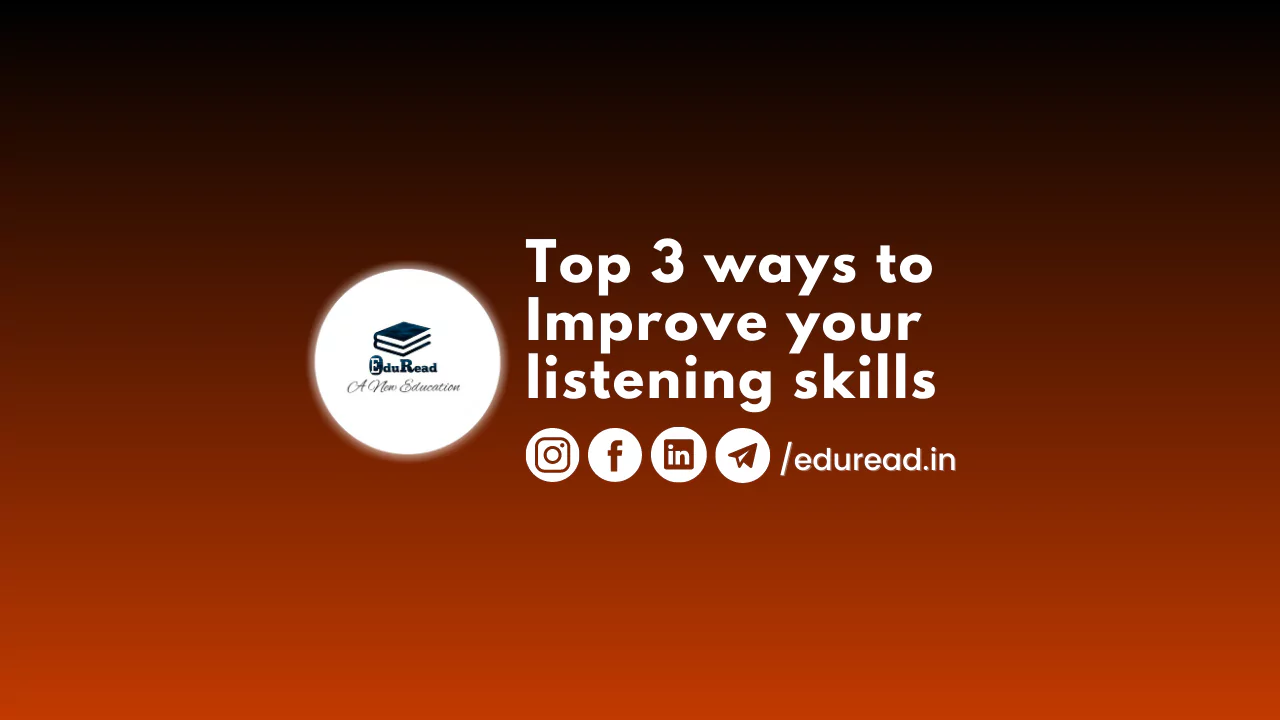Listening is a crucial communication skill that we need to practice every day, yet it is often overlooked. Good listening skills can help us build better relationships, learn new information, and solve problems effectively. In this blog, we will discuss the top three ways to improve your listening skills.
- Practice Active Listening
Active listening is a communication technique that requires the listener to fully concentrate, understand, and respond to the speaker. Here are some tips to help you practice active listening:
a. Pay attention: When someone is speaking, make sure you focus your attention on them. Avoid any distractions, such as your phone, TV, or other people around you. Maintaining eye contact is a great way to show the speaker that you are paying attention.
b. Show interest: Express interest in the conversation by nodding, smiling, or using facial expressions that show empathy. It’s important to let the speaker know that you care about what they are saying.
c. Ask questions: Ask open-ended questions to clarify any confusion or gain further information. Asking questions also shows the speaker that you are actively engaged in the conversation.
d. Paraphrase: Paraphrasing is when you repeat what the speaker said in your own words. This helps to ensure that you fully understand what they are saying, and it shows the speaker that you are listening.
- Remove Distractions
Distractions can negatively impact our listening skills. In order to improve your listening skills, it’s important to remove any distractions that may interfere with your ability to listen. Here are some ways to remove distractions:
a. Turn off electronics: Electronic devices such as phones, tablets, and laptops can be very distracting. Turn them off or put them on silent mode to avoid any interruptions.
b. Choose the right environment: Choose a quiet environment where you can focus on the speaker. If you’re in a public place, move to a quieter area.
c. Be mindful of your own thoughts: It’s easy to get distracted by your own thoughts when someone is speaking. Practice mindfulness by focusing on your breathing and clearing your mind of any distractions.
d. Practice patience: Sometimes, speakers may take longer to express their thoughts or ideas. Avoid interrupting them and give them the time they need to communicate effectively.
- Practice Empathy
Empathy is the ability to understand and share the feelings of others. Practicing empathy can help improve your listening skills by allowing you to connect with the speaker on a deeper level. Here are some ways to practice empathy:
a. Put yourself in their shoes: Try to understand the speaker’s perspective by imagining yourself in their position. This will help you to relate to their experiences and emotions.
b. Show compassion: Let the speaker know that you understand their feelings and emotions. Showing compassion can help build trust and rapport between you and the speaker.
c. Avoid judgment: Avoid making assumptions or judgments about the speaker or their experiences. This can cause them to feel unheard or disrespected.
d. Validate their feelings: Acknowledge the speaker’s feelings by validating them. Let them know that you understand how they feel and that their emotions are important.
Conclusion
In conclusion, improving your listening skills requires practice and patience. By practicing active listening, removing distractions, and practicing empathy, you can become a better listener. Good listening skills can help you build better relationships, learn new information, and solve problems effectively. Remember, listening is a two-way street, and both the speaker and the listener have important roles to play in effective communication.
Follow Us for more such content to improve your speaking skills:
To know more, check out here: https://eduread.in/tips-to-improve-listening-english-speak-new-york/
And visit us for more
